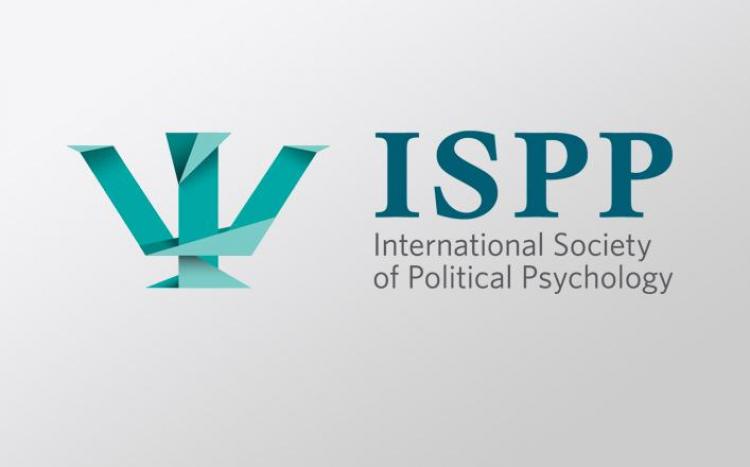
It is one thing to hear that there are baseless political trials; it is another to witness them in person and observe their effects.
The Turkish government has been using its three-judge “panel” courts, which are devoted to political crimes, to prosecute academics who signed the Academics for Peace on-line petition in 2016 for “spreading terrorist propaganda,” a charge that can carry a 1-to-5 year sentence. The petition asked the government to follow Turkish and international law by ceasing its attacks on Kurdish civilians as part of its campaign against Kurdish youth within Turkey, and to renegotiate peace with the Kurdish Worker’s Party (PKK). Recently, the government has moved all the trials to Istanbul, and has appeared to regularize how trials will be conducted. In fact, judges and prosecutors have been known to read the wrong name the defendant in court because they are using the same electronically-copied criminal charges and sentences from previous cases. Academics for Peace use #kopyalayapistir (copypaste) to comment on the trials for a reason. It appears that the panel courts view “uniformity” as “justice.”
At their request, we attended the political trials of our fellow ISPP members who we will refer to as Merve and Zeynep (not their real names) as international observers, conveying ISPP’s advocacy of their academic freedom and the solidarity of the other ISPP members. Merve and Zeynep are but 2 of the 52 academics who have been charged thus far with spreading terrorist propaganda. Both are PhD students Merve in social psychology, and Zeynep in political science. Although they can officially finish their PhDs the political charges against them have meant that they have lost their scholarships, had their passports restricted, are barred from working in the public sector or being hired anywhere for a period of more than six months (as that would entail a security background check), and they face all kinds of additional
hardships related to their persecution. Despite these hardships, Merve describes the experience as empowering, as she still has a voice, and people care what is happening to her.
Spending the full day in court, we had the opportunity to observe a number of other political trials. Several professors and students generously shared their time, expertise, and experience with us so we could learn more about the situation of academics in Turkey and the surrounding politics.
The accused ranged from young PhD students to mid-career professors to late career experts to retired professors living on their pensions. Most of the defendants had not asked for external observers because maintaining their anonymity is important for protecting other people. To a one, the accused gave eloquent, reasoned, and articulate defences. Each in her own words denied the criminality of signing the petition, denied the illegality of expressing ideas freely, repeated that they advocated for peace, not violence, asked the Turkish government to respect its own laws and international law, and would not denounce their actions. Further, they argued that as scholars whose expertise serves the public, as social scientists, psychiatrists, medical doctors, and so forth, it was their academic duty to speak up and criticize state violence against civilians, to prevent further trauma and war on all sides. They exuded dignity, strength, pro-sociality, and concern for their country and its people.
Their dignity was especially impressive considering the level of disrespect within which they were treated in court. Judges addressed the professors with the informal “you” rather than with their academic titles. Indeed, the indictments called them “so-called academics,” and the defendants were asked by the judges to state their academic credentials, even those who are internationally famous.
Judges may, and have been, requiring the accused to have repeated hearings as part of their trials. We came to attend Merve’s and Zeynep’s second hearing, which they expected to result in their final sentencing.
Zeynep’s hearing lasted only moments, even though the panel was not the same one as at her first hearing. In fact, the approximately 50 public observers were not fully seated by the time the chief judge ended the trial. Zeynep was not given the opportunity to present her defence. Despite hoping that she could put an end to this process, the court set a new date for a third hearing for her, and delivered no verdict. She does not know what to expect at her next hearing, but she was very glad for the presence of her colleagues.
Merve’s hearing was grouped with those often other academics, four of them attending their first hearing and six of them their second hearing. The proceedings started with a two-hour delay, when we were suddenly rushed into the courtroom. About 50 people could be seated in the audience, but the room was completely packed; three of us were seated on chairs for two. Enduring that discomfort was outweighed by the inspiration of the solidarity among the Turkish academics.
First the hearing addressed the four academics there for the first time. Each defendant gave an eloquent individual statement. The defence lawyers made a reasoned legal case that it is ridiculous to treat what is essentially a call for peace and a defence of human rights, “terrorist propaganda.” They asserted that as no evidence was presented, the charges simply amount to the prosecutor’s opinion.
In both courtrooms and with two different panels of judges, we observed so many irregular procedures that it is hard to describe the proceedings as “justice.” At one trial, the defendant’s prepared statement asked the prosecutor to identify the sentence in the petition that called for violence rather than peace. During that time, the prosecutor was asleep. At other trials, both the prosecutor and chief judge were playing with their mobile phones as defendants spoke. More than once, when the defendant, defense attorneys, and public were ordered to clear the room by the chief judge, the prosecutor remained in the room with the judges as they supposedly deliberated. We saw no evidence that any prosecutors or judges cared what the defendants or the defense attorneys said, nor that they felt compelled to substantiate their decisions with legal reasoning and evidence. The prosecutors presented no evidence whatsoever against any of the defendants, even when asked by the defendants or their attorneys. Prosecutors either ignored the defendants and their attorney’s entirely, or simply repeated the charges; they answered no questions. The judges either asked no questions, or interrupted the defense attorneys and defendants. None of the judges ordered prosecutors to do or say anything.
Merve and the other six having their second hearing had a chance to present their last statements before the final verdict. However, their defences were not heard or reacted to, and the chief judge ruled in line with all of the preceding court decisions and sentenced each defendant identically. All of the academics sentenced today received 15 months in prison, to be suspended for five years.
The suspended sentences come with the provision that the defendant not engage in further conduct that the government might find criminal. Some people already serving prison terms for political sentences have had their terms extended with additional charges made while they are already imprisoned. These are some of the many ways that these trials serve to intimidate, to induce self-silencing, and to induce some friends and colleagues to abandon and ostracize the accused.
Three of the defendants did not accept the verdict and will appeal to higher courts. One reason that the defense of freedom of expression is significant in these trials is that if the defendants appear to the European Court of Human Rights, this reasoning will be in the record of both indictment and defense.
Even if the court decisions were predetermined before the “hearings,” our presence made an important difference. Firstly, our witness will help expose the trials and to draw international attention to the trials within and beyond the academic community. We encourage our colleagues and friends to share this report and to offer all the support they can. Secondly, we showed our solidarity with our colleagues, acknowledging that their plight is recognised and that we support them in their struggles. For this they were unduly grateful. Third, we learned what a community of support the scholars in Turkey are making for each other. We were inspired by their generosity to each other and to us, their determination to do their jobs and what is right, and by their creative resistance. Finally, the trip gave us an opportunity to ask our Turkish colleagues the practical ways we, as an academic community, can support them and stand up for their work their academic freedom, and other rights.
Right now, there is an urgent need for international financial support for the persecuted academics in Turkey!
To donate, please click here:
https://ispp.eventsair.com/ispp-members/donations2018/Site/Register
This article is part of the ISPP’s wider coverage of the Turkish government’s prosecution of academics in Turkey. For more information please visit our webpage here:
https://www.ispp.org/about/scholars_turkey
Source: https://medium.com/@ispp.ecc/report-of-the-international-observers-in-tu...
